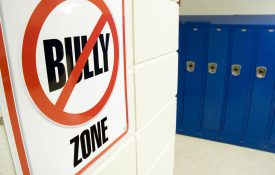-
The mama grizzlies: Why mothers who breast-feed are more aggressive at protecting their young than those that use the bottle
Daily Mail: Women who breast-feed are far more likely to aggressively protect their infants and themselves than women who bottle-feed their babies, claim researchers. Female grizzly bears are known for their especially aggressive behaviour when protecting their young. Now a study has found that when breast-feeding women behave aggressively, they register a lower blood pressure than other women. Researchers say the results suggest that breast-feeding can help dampen the body's typical stress response to fear, giving women the extra courage they need to defend themselves. Jennifer Hahn-Holbrook, a postdoctoral fellow in the UCLA Department of Psychology in the U.S.
-
Campaign Aimed At Patient Health Ups Doc Handwashing
Scientific American: Handwashing is the best way to avoid spreading infection, according to the CDC. But doctors, nurses and hospital staff wash up less than half as often as they should. Some hospitals encourage handwashing by posting signs that tell docs a simple scrub will prevent them from getting sick. But a study finds a more effective reminder: clean hands helps patients. The research is in the journal Psychological Science. Investigators posted one of three signs at 66 soap and sanitizer dispensers in a US hospital.
-
Like Mama Bears, Nursing Mothers Defend Babies With A Vengeance
Women who breast-feed are far more likely to demonstrate a "mama bear" effect — aggressively protecting their infants and themselves — than women who bottle-feed their babies or non-mothers, according to a new study in the September issue of Psychological Science, a journal of the Association for Psychological Science. And when breast-feeding women behave aggressively, they register a lower blood pressure than other women, the study found. The results, the researchers say, suggest that breast-feeding can help dampen the body's typical stress response to fear, giving women the extra courage they need to defend themselves.
-
You Can Spot a Future Bully at Age 1, Research Shows
Huffington Post: Infants don't really have what it takes to be bullies. They simply lack the physicality -- the strength and coordination and mobility -- to be aggressive. But are some of these babies already little bullies inside, just waiting to show their dukes? That may sound like a cynical view of human nature, but it's basically what some new research is suggesting. While only a minority of toddlers are habitual bullies, this aggressive tendency appears to emerge right along with the motor skills that make it possible -- by age one. What's more, such playroom roughness appears linked to the mothers' own problems with mood and conduct.
-
Big heads, big profits
The Sydney Morning Herald: So, a chief executive walks into a bar. ''Why the long face?'' asks the barman. ''It's because I'm not very good at my job actually,'' he replies, ''thanks for asking.'' It's not much of a joke, but it might as well be the summary for a recent study set to be published in Psychological Science, a journal of the Association for Psychological Science. Run by the University of Wisconsin-Milwaukee, the study of 55 (male) CEOs of publicly-traded Fortune 500 companies concluded the wider the face, the better the financial performance.
-

Back-to-school dilemma: Why do bullies bully?
Long thought to result from fragile self-esteem, bullying may instead stem from grandiose, inflated, and narcissistic self-assessment, some psychological scientists argue.

